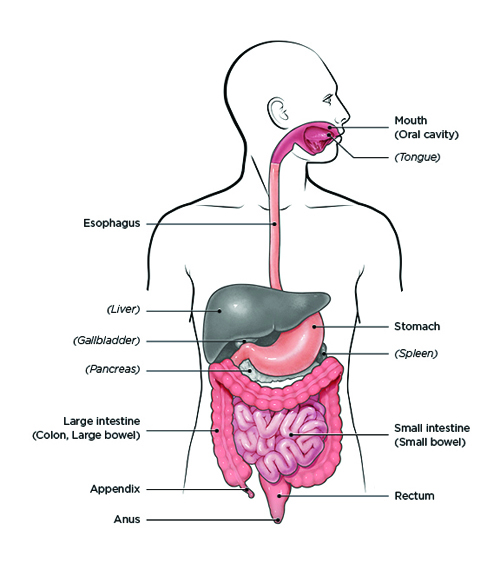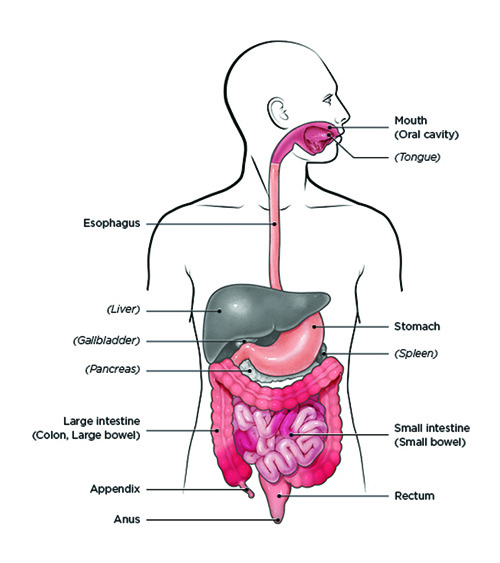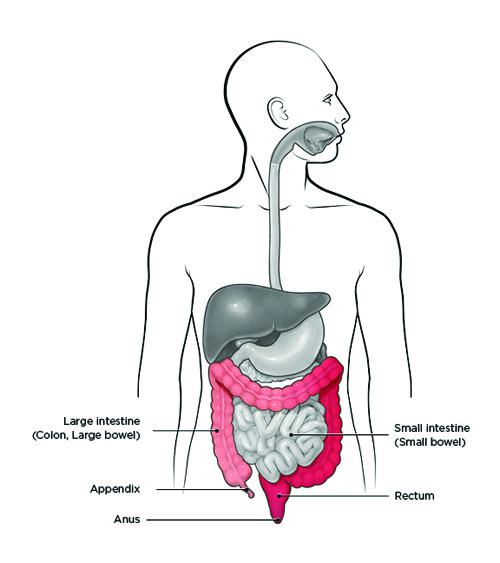 The gastrointestinal tract of a healthy person, showing no areas of inflammation.
The gastrointestinal tract of a healthy person, showing no areas of inflammation.KUWAIT: Living with a chronic disease is a day-to-day struggle for persons who have them, especially people plagued with gastronomical disorders and/or abnormalities, who experience them in a very limiting manner. Inflammatory Bowel Disease (IBD) is a chronic autoimmune group of disorders that cause two types of inflammation: Crohn's disease and Ulcerative Colitis (UC).
"IBD symptoms usually vary, but in general patients suffer from severe diarrhea, or rectal bleeding, loss of appetite, anemia, besides some minerals deficiency," Dr Mohammad Shehab, Consultant in internal medicine and gastroenterology and hepatology, said in an interview.
The exact cause of IBD is unknown, but could be either genetic or multifactorial, like failure of immune system to defend the body from foreign organisms, such as viruses and bacteria. However, the digestive tract inflammation can occur even when there is no infection, where the immune system attacks the body's own cells instead.
There might be a genetic component to infection like a family history of IBD, which increases the chance to develop any type of IBD. Crohn's may attack any part of the digestive tract (from the mouth to the anus), but it mostly affects the part of the small intestine before the large bowel (colon), while Ulcerative colitis occurs regularly in the large bowel and the rectum.
Both could be diagnosed using a combination of endoscopy (for Crohn's disease) or colonoscopy (for UC) and imaging, such as contrast radiography, magnetic resonance imaging (MRI) or computed tomography (CT). "There are multiple medications that may be used to treat IBD; aminosalicylates, immunomodulators, and some are injectable such as (biologics)," Dr Shehab pointed out. Patients' need of surgeries for Crohn's and Ulcerative Colitis depends on how the disease is responding to treatment.
 The gastrointestinal tract of a person affected with Crohn's disease, showing the areas of inflammation.
The gastrointestinal tract of a person affected with Crohn's disease, showing the areas of inflammation.Types of Crohn's
Crohn's can be categorized as Crohn's of the anus, Crohn's of the colon (Colitis) and Crohn's of the small bowel (Enteritis), Dr Ahmad Al-Khamis, General and Colorectal Surgeon, said. If the IBD attacks the whole colon, and all treatments fail, doctors would suggest resection of the whole colon (in the cases of UC). But if it attacks only part of the colon or a specific part of intestine (in case of Crohn's), "we resect and then anastomose," which is linking a colostomy plastic bag (also known as stoma) that collects fecal matter from the digestive tract through an opening in the abdominal, Dr Khamis explained.
"We don't need a stoma for all types of Crohn's surgeries, even if the case is really bad, we can admit the patient, cool them down with antibiotics and within one or two weeks of feeding them TPN (a method of feeding that bypasses the gastrointestinal tract, where fluids are given through the vein to provide the body with most nutrients needed) and then we can perform the surgery without using a stoma," Dr Khamis pointed out.
Moreover, when the patient has a Crohn's-related complication, this might indicate the need for surgery, he stated. A patient can also develop a fistula; an abnormal connection between an organ and another structure during inflammation, which could heal or treated when the gastroenterologist use a balloon-dilated cannula. Living with IBD requires patience. However, it is important to establish good communications with the doctor. Patients will need to establish a collaborative relationship with all their healthcare providers, especially their gastroenterologist, to achieve the best long-term results.
 The gastrointestinal tract of a person affected with Ulcerative Colitis, showing the areas of inflammation.
The gastrointestinal tract of a person affected with Ulcerative Colitis, showing the areas of inflammation.Once the disease has developed, paying attention to diet may help reduce symptoms, replace lost nutrients, and promote healing. Keeping a food diary can be a huge comfort. Specialists advise against hiding the health condition from the people in the patient's life. They advise the patient to discuss his/her case and exchange experiences with people around them in order to understand what kind of support the patient needs. A patient will learn numerous strategies that can make living with IBD easier.
Fortunately, in Kuwait, healthcare is free for citizens and covered by insurance for residents, as medication has a relatively high price tag. In addition, there are many medical centers to treat IBD, such as Haya Al-Habeeb Digestive System Center in Mubarak Al-Kabeer Hospital. Kuwait provides a caring service, a private free-of-charge nurse for patients taking Biological injections, to come and give them their required dose on time. There are no doubts that living with this disease is challenging, while the patient has to take medication occasionally, make life-style adjustments, it is important to remember that most people with IBD are able to lead rich and productive lives. - KUNA










